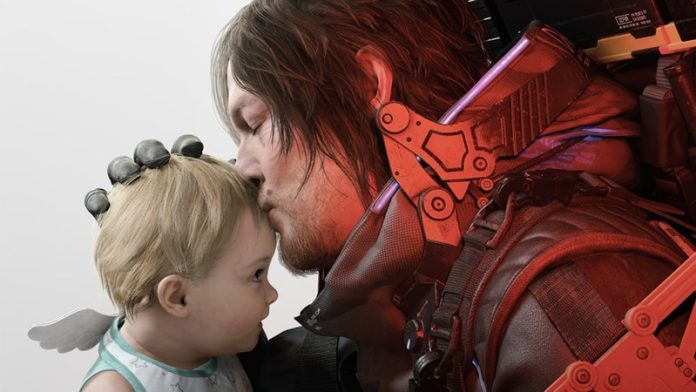“Should we have connected?”
That was the question legendary creator Hideo Kojima posed in the early marketing of Death Stranding 2: On the Beach. On the surface, it felt like a thematic hook—a clever rhetorical tagline that questioned the actions of its forebear. But close to one month later, after I finished the game, that question didn’t feel rhetorical anymore. It felt personal. Painfully, beautifully personal.
So much so, I decided not to review Death Stranding 2: On the Beach anymore. Because what this game meant, it transcended being just another game I would/wouldn’t recommend. If you’re curious, I liked it even more than Clair Obscur: Expedition 33, so you can guess my score, but that’s beside the point. Instead, let me tell you a story. One of self-reflection and reckoning.
When I started Death Stranding 2: On the Beach the night of June 26th, I wasn’t expecting a spiritual unraveling. I thought I’d be playing the improved sequel to one of the most interesting/divisive games in recent years. What I got, instead, was something that felt like a mirror to the deepest part of me—a story that didn’t just entertain, but healed.
I played the game in the middle of a transformation I didn’t see coming. On June 5th, I boarded a plane expecting nothing more than a gaming dream come true—attending Summer Games Fest. On the surface, it was the ultimate fan fantasy. Years of seeing what it was like covering games, getting to the point I could finally reach such an important milestone and attend one of these things. But what unfolded beyond that blissful week was something I could never have scripted. The lifelong dream? It was the tip of the iceberg.
This trip became the catalyst for one of the most transformative months of my life. I reconnected with family I hadn’t seen in years. Met family I’d never met before, one who I found is quietly going through the same journey I’ve had. I healed an emotional phantom ache I’ve been harboring for my entire life. I built bonds that mended something quietly broken inside me. It made me come face to face with inner demons that have tormented me for years.
And through it all, I kept returning to Sam Porter Bridges and the world he walks through—one burdened by grief, connection, and fragile hope. And through his actions, I found the metaphorical representation of my own journey.
Kojima’s design choices often straddle the line between spectacle and soul-searching, and in Death Stranding 2: On the Beach, he leans deeper into the latter than ever before. The gameplay never hides its deliberate pace or symbolic absurdity—it embraces it. Because real connection isn’t always thrilling or clean. Sometimes it’s awkward, repetitive, painful. But that’s life. The packages we carry, the people we protect, the burdens we choose to shoulder—it’s all there in his language of traversal, thread, and time.
Somewhere around the final act, I broke down. Not because of a boss battle. Not because of a plot twist. Not because of some incredible spectacle (for which this game has plenty of).
But because the game dared to ask me, “Do you still believe in connection?”
As I wrestled with the month I had, the meaning of the connections I had rebuilt myself, the game nudging that question to me put everything in place. For the first time ever, I DID.
Having wrestled with loneliness, addiction, identity, and loss, and having been burned by institutions and people I trusted, Death Stranding 2: On the Beach reminded me that there is still beauty in trying again. In walking forward. In choosing to believe that the next bridge you build might actually hold.
What does connection mean to me now? It means presence. It means being seen in silence and heard without having to shout. It means risking your heart so someone else knows they’re not alone in theirs. Connection is a sibling bond that feels soul-deep. It’s a father’s sermon that unknowingly mirrors your journey. It’s a text that arrives the very moment you fight temptation, pulling you back toward your own center. It’s knowing that even in the isolation we sometimes choose—or endure—there are bridges, if we dare to reach.
I’ve carried a lot of weight over the years—emotional, spiritual, and physical. As Sam drudged across rocky terrain, tethered to the very tools that both aided and slowed him, I saw myself. I felt the ache of every climb and the warmth of every moment someone showed up beside him. No matter how hard, how arduous the climb gets, there’s always hope.
At the end of the game, I didn’t feel like I’d “won.” I felt like I’d been reshaped. Gently stitched back together by a story that understood what it meant to fall apart and still keep walking.
I set out to chase a dream—attending a gaming convention I’d looked forward to for years. It delivered in some ways, sure. But what it led to—the months of reconnection, healing, vulnerability, and emotional risk—reminded me of something far more important:
I didn’t just fulfill a dream. I remembered what it’s like to live.
And I thank Death Stranding 2: On the Beach for metaphorically being there for me through this.
